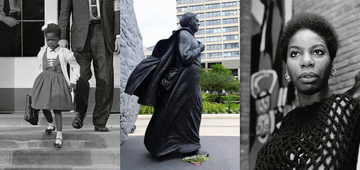The ongoing COVID-19 pandemic and the national vaccination programme make the skills and knowledge involved in encouraging vaccination uptake more valuable than ever. Once the initial rollout is complete, this skillset will be vital for the workforce involved with the probable autumn and winter booster programmes. Whilst over 60 million jabs have been delivered across the UK since late 2020, research from the Office for National Statistics (ONS) suggests that around one in ten (9%) adults reported vaccine hesitancy between January and February 2021.
We know that rates of vaccine hesitancy fluctuate across the population, with higher rates reported in groups at a greater risk of contracting COVID-19 and becoming severely ill as a result. Around one in three (30%) of Black and Black British adults and one in eight of those living in the most deprived areas would not be likely to receive the vaccine, or have already declined it when offered.
There is also concern around the impact that vaccine hesitancy could have on the long-term health and wellbeing of children and young people. The ONS has identified that around one in six (16%) parents living with a dependent child aged 0 to 4 years report vaccine hesitancy, as well as a similar proportion (17%) of adults aged 16 to 29 years.
We’re really proud to announce that this month, we launched the RSPH Level 2 Award in Encouraging Vaccination Uptake. We saw there was a need for a regulated qualification that educates people about all the positive aspects of vaccinations and vaccine programmes, whilst also providing reliable evidence that dispels vaccine misinformation.
The RSPH Level 2 Award in Encouraging Vaccination Uptake has been designed to provide the wider public health workforce, including those working in social care and community health champions, with the knowledge and skills required to meet the challenges that vaccine hesitancy pose. The qualification supports learners to build their understanding of the importance of vaccination programmes and the common sources of vaccine hesitancy, as well as to use behaviour change models and motivational techniques to support individuals in making a decision to receive a vaccination.
We worked in partnership with Lambeth Council to deliver the qualification to the inaugural group of learners, ranging from contact tracers to individuals working in social care, with the delivery being funded by NHS South East London Clinical Commissioning Group. The feedback from people who have already taken the qualification has been overwhelmingly positive, with:
-
100% of learners saying that their understanding of vaccination programmes improved
-
100% of learners saying that they know a lot about “a lot” about the sources of vaccine concern and vaccine hesitancy, compared to 15% of learners before delivery
-
100% of learners saying that they now feel “a lot” or a “great deal” of confidence in having a conversation with an individual around vaccine concerns and vaccine hesitancy, compared to 20% of learners before the course
-
100% of learners would recommend the course to a colleague
Christina Marriott, Chief Executive of RSPH said:
“We are really pleased to be offering this qualification to our centres and to be supporting individuals to have positive and constructive conversations around vaccination programmes and vaccine hesitancy at this critical time. This training will support individuals across communities and workplaces to not only support the roll-out of the COVID-19 vaccination programme, but also to develop skills and knowledge that can be used to support conversations around uptake of other vaccinations, such as the annual flu vaccine.”
Bimpe Oki, Consultant in Public Health at Lambeth London Borough Council said:
“We’re delighted to be working with RSPH to offer this qualification to individuals who live and work across our Borough. As individuals, so much of our knowledge and attitudes around health and wellbeing are shaped by conversations we have with the people we live and work alongside. This qualification is vital in supporting individuals in Lambeth to have positive, constructive and well-informed conversations around vaccination programmes and vaccine confidence.”



